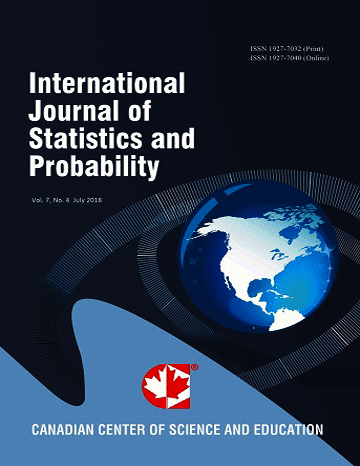The Principle of Indifference Does Not Lead to Contradictions
- Wolfgang Tschirk
Abstract
The Principle of Indifference says that if there are a finite number of propositions and a state of knowledge according to which none of the propositions is more plausible than any other, then, conditional on that knowledge, all of them have the same probability. Most researchers reject the principle because there exist counterexamples believed to prove that it leads to contradictions. We analyse three examples representative of the objections to the principle and show that, rather than disproving it, they suffer from a common error in applying it. From this and the fact that the Principle of Indifference complies with plausible reasoning we conclude that it does not lead to contradictions.
- Full Text:
 PDF
PDF
- DOI:10.5539/ijsp.v5n4p79
Index
- ACNP
- Aerospace Database
- BASE (Bielefeld Academic Search Engine)
- CNKI Scholar
- DTU Library
- Elektronische Zeitschriftenbibliothek (EZB)
- EuroPub Database
- Excellence in Research for Australia (ERA)
- Google Scholar
- Harvard Library
- Infotrieve
- JournalTOCs
- Mir@bel
- Open policy finder
- ResearchGate
- Technische Informationsbibliothek (TIB)
- UCR Library
- WorldCat
Contact
- Wendy SmithEditorial Assistant
- ijsp@ccsenet.org
